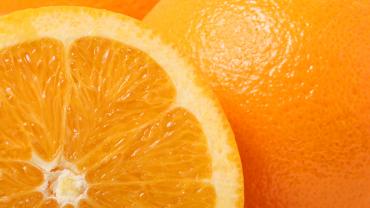
Naringin and its aglycone naringenin are flavonoids that are widely distributed in the peels of several citrus fruits, such as bitter orange, grapefruit, lemon, and bergamot, along with other fruits, such as tomatoes and tart cherries. These phytochemicals have been shown to possess anti-inflammatory, anti-oxidant, anti-microbial, anti-tumor, anti-adipogenic, and cardioprotective properties, and to reduce endothelial dysfunction. The underlying anti-inflammatory mechanisms and effects on obesity and metabolic disorders of these citrus flavonoids have not yet been fully elucidated in clinical trials.
Although most of the research on naringenin has been done in vitro and in vivo, a recent clinical trial published in the International Journal of Clinical Practice assessed the effects of naringenin supplementation on liver aminotransferase enzyme levels (i.e., aspartate transaminase [AST], alanine transaminase [ALT]), lipid profiles, hepatic steatosis severity, and probability of liver fibrosis in overweight or obese patients with nonalcoholic fatty liver disease (NAFLD). The severity of hepatic steatosis, NAFLD fibrosis score, and the fibrosis-4 index are shown in clinical trials to be significantly correlated with atherogenic lipid profiles in adults. In fact, along with increased cardiovascular disease risk, obesity and dyslipidemia are major risk factors for NAFLD.
In this parallel randomized, double-blind, placebo-controlled trial, the participants were divided into a control group or a naringenin-treated group, both receiving either 100 mg of naringenin capsules or identical placebo capsules twice per day for 4 weeks. After 4 weeks, 200 mg/day of naringenin significantly reduced serum triglycerides, total cholesterol, and low-density lipoprotein cholesterol levels and increased high-density lipoprotein cholesterol levels compared to the controls. The naringenin supplementation treatment also significantly reduced percentages of NAFLD grades compared to the placebo group. However, there were no remarkable changes in serum AST and ALT, or NAFLD fibrosis scores compared to the control group. As an indicator of hepatic steatosis severity, these results revealed that daily naringenin supplementation may have a beneficial effect on lipid profiles and percentages of NAFLD grades in overweight and obese patients who already have NAFLD.
Previous in vitro and animal models of NAFLD found 100 mg/kg of naringenin supplementation attenuated hepatic lipid deposition in mice, preventing NAFLD by inhibiting the expression and activation of the NLRP3/nuclear factor-kappa B signaling pathway. According to a review, naringin and naringenin are effective treatment options for metabolic syndrome, obesity, and cardiovascular complications in animal models, as these compounds were shown to preserve mitochondrial function and influence 5' adenosine monophosphate-activated protein kinase–mediated, peroxisome proliferator-activated receptor-alpha–mediated, and carnitine palmitoyltranserase-1–mediated fat utilization.
Considering NAFLD is common among patients with dyslipidemia, and it is a major risk factor for cardiovascular disease, then nutritional and lifestyle changes with dietary supplementation may have a beneficial effect on lipid metabolism for these individuals. Bergamot, bitter orange, naringin, and other citrus flavonoids may help support normal lipid metabolism, liver function, and healthy body composition.*
By Caitlin Higgins, MSCN, CNS